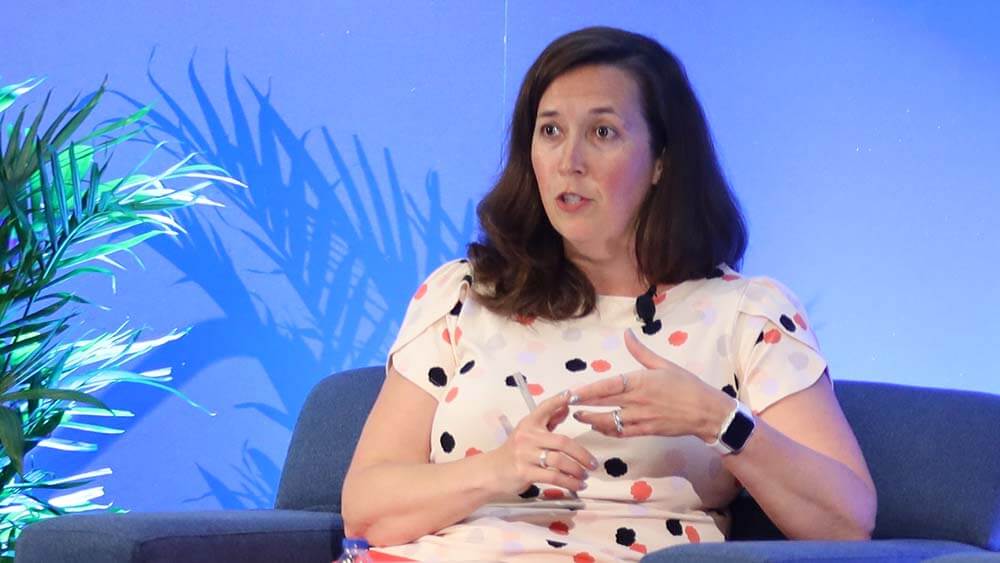
After being laid off in 2020, Heather Seasholtz, shown here speaking at PCMA Educon 2022, said she realized that she had to “embrace my own unknowns and seize the moment.” (Jacob Slaton Photography)
As an event organizer, Heather Seasholtz, CMP-Fellow, DES, has long had a plan for every scenario — “every ‘what if,’ every ‘why’ or ‘why not,’” she told Convene. “I ask questions to ensure every stone is unturned and explore around every corner.” But a pandemic was not something she could have seen around any corner. She was laid off in the summer of 2020 from a job she had previously felt was secure.
“It rocked me to my core,” Seasholtz said. After processing that loss, she realized that she had to “embrace my own unknowns,” she said, “and seize the moment.” So she got to work earning the Digital Event Strategist (DES) certification and taking courses that helped her understand the nuances of holding meetings safely during a public health crisis. She also sought professional resources to help her hone her leadership skills. “Professional coaching was a topic I heard about on a podcast, and it was something I felt I needed,” she said. “It was one of the best investments I made in me.”
Along with Mary-Ann Urbanovich and Shannon Majewski — event professional colleagues who also had lost their jobs — Seasholtz created the Pandemic Compliance Advisor course to help “bring our industry back” by educating planners about health and safety at events, she said. “We wanted meetings to return, and we took an active role in making that happen.”
Seasholtz is now working at Conference Managers, where she serves as vice president of conference operations. And while meetings are returning for her clients, forecasting the number of rooms and breakouts they will need and how many participants will attend is not as easy as in pre-pandemic times.
“That blueprint is out the window,” she said. “We no longer have a history and can compare progress with pace reports,” she said. “2022 is the new benchmark — history starts now. While comparing to 2019 may seem reasonable, buying patterns have changed for our attendees, health protocols at meetings can impact attendance, and the geopolitical climate has also changed over the past three years,” she said. “I think uncertainty is the only certainty I have.”
Casey Gale is managing editor of Convene.
